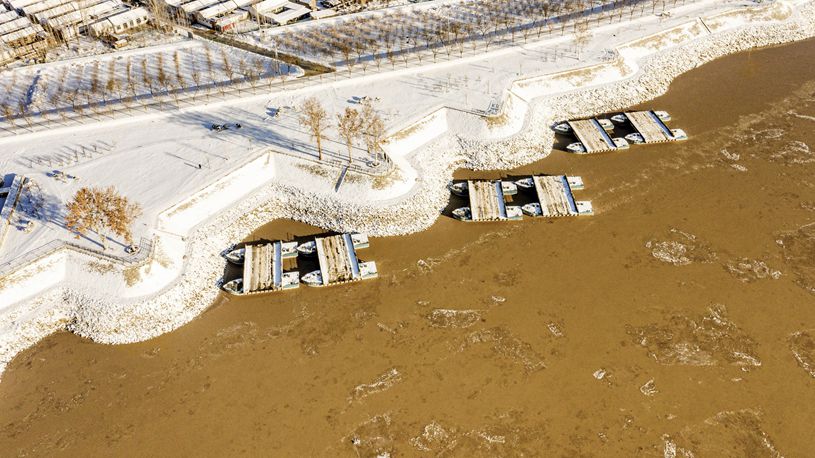
A hydronaut unhitches the rope on the crewed submersible Shenhai Yongshi (Deep Sea Warrior) from the scientific research ship Tan Suo Yi Hao (Discovery One) to make preparations for underwater investigation in the South China Sea, May 26, 2023. (Xinhua/Pu Xiaoxu)
The Philippines' provocations in the South China Sea harm regional stability and development, said a Chinese researcher.
BEIJING, Dec. 19 (Xinhua) -- The Philippines' provocations in the South China Sea undermine the cooperation between China and the Association of Southeast Asian Nations (ASEAN), and could have a spillover effect on the stability and development of the Asia-Pacific region, said a Chinese researcher.
The South China Sea has emerged as one hotspot as the Philippines, incited by the United States, noticeably increased its provocations in the South China Sea, said Zhang Jie, a researcher from the National Institute of International Strategy of the Chinese Academy of Social Sciences, in a recent interview with Xinhua.
The United States has always wrongfully regarded China as the only country with the willingness and capability to challenge it, and in order to avoid a direct confrontation with China, it has chosen to shape the strategic environment around China, according to the researcher.
"It is evident that the United States, by directly involving itself, may not have as much legitimacy as, for example, if countries like the Philippines act as its vanguards," she said.
The United States aims to keep the South China Sea issue heated but does not desire a complete breakdown. Therefore, it has regarded the recent incidents as law enforcement actions, without invoking the U.S.-Philippines Mutual Defense Treaty, according to the expert.
"In terms of the situation on the diplomatic stage, it is evident that provocations such as those from the Philippines could indeed disrupt the overall progress of China-ASEAN cooperation," she said.
The Asia-Pacific region contributed to over 60 percent of the global GDP growth during the last decade, making it a pivotal area for global economic advancement, she said, adding that ASEAN has concentrated on regional development with the aspiration to maintain its economic growth center.
"Given the current economic challenges worldwide, any conflict or major escalation, such as in the South China Sea, could significantly disrupt the trajectory of regional and global economic development," she said.
China and ASEAN countries share the consensus that the South China Sea issue is not a security concern, and currently, Southeast Asian countries are confronted with more pressing issues, including food security, energy security, and non-traditional security threats, such as cybersecurity, said the researcher.
"So we can see that ASEAN countries refrained from outright endorsement of the Philippines' provocations as they are perceived as potentially jeopardizing the collaborative efforts between China and ASEAN in these pressing issues," Zhang said.
It would be preferable for the Philippines to restore dialogue with China with sincerity to find crisis management measures, which should be based on the Declaration on the Conduct of Parties, so as to stabilize the overall situation in the South China Sea, said the expert.
"It is crucial to establish effective mechanisms for regional security governance and allow for collaborative responses to emerging challenges, so that the economic development momentum across the Asia-Pacific region can be sustained," she added.■












